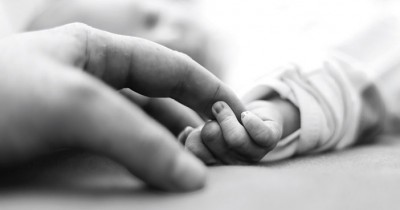
How many times have you been stopped and congratulated on being pregnant or having a baby?
How many times have you heard the responses, “Oh, how wonderful? Isn’t it just the best thing? Aren’t you happy?
This might be difficult to hear when you feel sad, angry, want to cry, want to yell, hide, run away or disappear.
Thousands of women suffer from perinatal/postpartum depression, anxiety and/or other mood disorders.
This doesn’t mean that you didn’t want to have a baby, doesn’t mean you don’t love your baby.
PPD (postpartum depression) is a biological complication of pregnancy. During pregnancy, levels of certain hormones rise and then rapidly fall after giving birth. In some women, these hormone shifts may contribute to PPD.
Postpartum depression is a silent disease that affects over 3 million women in US every year. When you are pregnant or have a baby, people and YOU expect this to be a happy time when you can’t wait to hold your baby, buy baby things, sing to your baby, dress your baby up in cute things and be amazed at everything the baby does. And this is what most women feel when the pregnancy and birth went well and the mom and baby are healthy.
Women who suffer from postpartum depression do not feel that. They are afraid, ashamed and embarrassed to share their real feelings and thoughts. So they suffer in silence……
Women who suffer from PPD might feel sad, angry, irritable, resentful, tearful, hopeless, feeling lost and feeling that they suffered loss. A lot of women may only be able to tell you they are “overwhelmed” as they still expect to feel happy.
Women with PPD often neglect self-care; they don’t care to shower, forget eating or don’t feel hungry, can’t sleep or sleep too much. They often lose interest in doing things they previously enjoyed and/or isolate themselves. Their relationships really suffer. Arguments with significant others, parents and other family members, getting frustrated with children, avoiding friends.
Moms with PPD may get scary, worrisome thoughts like something terrible might happen to their baby or to them or that their baby might be better off without them.
The babies can affected because moms with PPD are emotionally detached or so anxious and worried that they can’t focus on nurturing the baby.
Untreated condition may last for months, if not years and can affect the whole family.
Most of the time, good self-care, supportive environment and some sleep might help. But some women might need more.
Postpartum depression is a medical disorder caused by hormone imbalance.
THERE IS HELP, THERE IS TREATMENT!!! YOU ARE NOT ALONE!
I’m reaching out to my community, my strong, resilient, adaptable and yet old school community that I love. I encounter so many women who suffer with PPD and do not get help because of the STIGMA OF MENTAL ILLNESS.
Fortunately, there are many resources available for pregnant and postpartum women who deal with depression, anxiety and other mental health
issues.Working with women with postpartum depression, I have seen great outcomes where the moms start feeling better, not depressed, happy, enjoying being a mom. Moms start to bond with babies, repair relationships with spouses, children. I hear so many women say, “I am me again”.
If you are a woman or know a woman who is suffering, help her get to treatment.
Talk to your OBGYN, your primary care doctor.
Get information and referrals at PostPartum Support International www.postpartum.net
Don’t be afraid to take your first step to feeling happy and being you again!
Postpartum Depression
Typography
- Smaller Small Medium Big Bigger
- Default Helvetica Segoe Georgia Times
- Reading Mode


